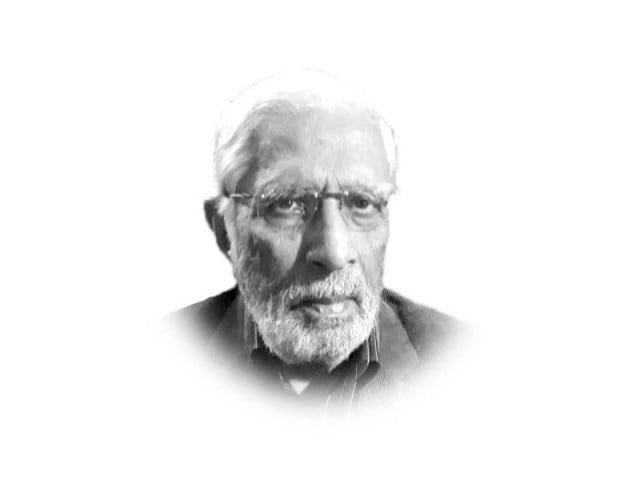Another round of lost decades?
We seem to be regressing into the politically unsettled period of the 1990s

The opposition chooses to call Imran Khan the ‘selected’ Prime Minister. The epithet clearly carries the stigma of having been helped into the position presumably by the so-called establishment. But then, none of the PMs that occupied the exalted office since ZA Bhutto, except for Benazir Bhutto when she became the PM for the first time, could claim to have had no clandestine help from the ‘selectors’ in their journey to the top.
In the case of ZAB, the army had him sworn in as the president, the commander-in-chief, and the first civilian chief martial law administrator (CMLA) in December 1971. PM Mohammad Khan Junejo was hand-picked by then president General Ziaul Haq in 1985. In 1988, the establishment tried its worst to keep Benazir Bhutto from getting elected but failed. But the ‘elected’ executives that followed her, Nawaz Sharif (1990), Benazir Bhutto (1993), Nawaz Sharif (1997 and 2013) and the ‘all powerful’ president Asif Ali Zardari (2008) — were all, in fact, selected.
Like in the 1990s, currently as well the government of the day and the opposition are not on talking terms. In fact, like in those highly hostile political settings, the government and opposition are enjoined today in a bitter contest bordering on a race to completely annihilate each other. The language they use against each other is as harsh, if not more, as the then government and opposition had used to attack each other. And today’s opposition, ironically, is threatening to use the same tactics — long march, sit-ins, resignations — that the PTI had used when in opposition to force the government of the day to resign, and which the then PML-N government had termed undemocratic.
It was only when both the PPP and PML-N were out of power and in exile with the military dictator General Musharraf ruling the roost in Islamabad, that the two realised that they had been pitted against each other by the establishment to keep the reins of power firmly in its control while the two political parties conveniently provided the democratic façade. So, the two signed the Charter of Democracy in 2006. The document guaranteed that whenever any of the two came to power in future, the other would not join hands with the establishment to bring the other down. The journey after 2008 when PPP came to power was full of pitfalls and slippages but the two finally managed to get the 18th Amendment passed which restored the 1973 Constitution almost in its original form making it almost impossible for the establishment to take full control of the ruling enterprise. Because of this amendment, the establishment had to seek the help of superior courts to get rid of the ‘unwanted’ PMs as the Constitution barred sending entire governments home. That is perhaps why both the PPP and PML-N could complete their tenures losing, however, one PM each to court verdicts rather than being subjected to constitutional ouster.
But instead of realising that the establishment was only trying to repeat the game it had played to the hilt during the 1990s, the 11-party opposition conglomerate, the PDM led by PML-N, PPP and JUI-F, seems to be futilely trying to remove PM Imran using the same undemocratic tactics that he had but vainly used to oust the elected government of PML-N. So far, the PDM has neither marched on Islamabad, nor tendered resignations. It has, however, kept the government under constant pressure, especially since September 2020. Its success in getting Yousaf Raza Gilani elected as a senator has certainly dealt a severe blow to the government’s scheme of things. But Sadiq Sanjrani’s election to the office of the Senate chairman in a House in which the opposition is in majority, however, seems to have restored its faith in the one-page mantra. And now instead of seeking the PDM’s cooperation in running the government as per the Constitution, it seems all set to resume its witch-hunt against the opposition with reinforced vigour. So, we seem to be regressing into the politically unsettled period of the 1990s, beckoning the resumption of another round of lost decades.
















COMMENTS
Comments are moderated and generally will be posted if they are on-topic and not abusive.
For more information, please see our Comments FAQ